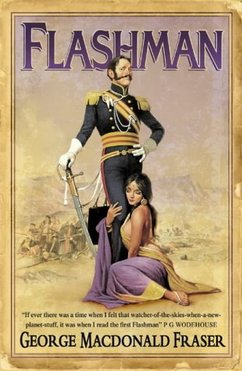火烧圆明园是怎么回事? Burning of the Imperial Palace
火烧圆明园是怎么回事?
As a chinese, everyone knows about “火烧圆明园” (Burning of the Yuan Ming Yuan). It has been made into movie several times. Along with movies of Opium War (known as 八国联军 (Eight-Nation Alliance)) , and many kungfu hero movies, it's heavily tied with Chinese nationalism. If you ask a random Chinese on what really happened, the answer would be similar to if you ask a American about “Pearl Harbor”, or if you ask a Mexican about Mexican–American War. You can feel the pride in their blood.
But what really happened? Here's Wikipedia: Old Summer Palace; 圆明园. Excerpts:
The Old Summer Palace (aka Yuan Ming Yuan) …, was a complex of palaces and gardens in Beijing. …, built in 1707 to 1800s, where the emperors of the Qing Dynasty resided and handled government affairs… Known for its extensive collection of garden and building architectures and other works of art.
… were made up of three gardens … Together they covered an area of 3.5 square kilometres (860 acres). They were almost 5 times the size of the Forbidden City, and 8 times the size of the Vatican City.
In 1860 during the Second Opium War, two British envoys, a journalist for The Times and their small escort of British and Indian troopers met with the Royal Prince to negotiate. Instead they were confined and tortured, resulting in twenty deaths. The British High Commissioner to China, Lord Elgin, retaliated by ordering the destruction of the palace, which was then carried out by French and British troops.
It took 3,500 British troops to set the entire place ablaze, taking a total of three days to burn.
Note that the Chinese Wikipedia version is more rich. In the Chinese version, it claims the looting started first before the capture of the envoys.
Here's a description of the burning:
Charles George Gordon, then a 27-year-old captain in the Royal Engineers who later made his name in the Sudan, was part of the 1860 force and wrote:
We went out, and, after pillaging it, burned the whole place, destroying in a vandal-like manner most valuable property which [could] not be replaced for four millions. We got upward of £48 apiece prize money...I have done well. The [local] people are very civil, but I think the grandees hate us, as they must after what we did the Palace. You can scarcely imagine the beauty and magnificence of the places we burnt. It made one's heart sore to burn them; in fact, these places were so large, and we were so pressed for time, that we could not plunder them carefully. Quantities of gold ornaments were burnt, considered as brass. It was wretchedly demoralising work for an army.
Google Map: [The Old Summer Palace]
Found this comment by Victor Hugo (the author of The Hunchback of Notre-Dame Buy at amazon):
Victor Hugo, in his “Expédition de Chine”, described the looting as “Two robbers breaking into a museum, devastating, looting and burning, leaving laughing hand-in-hand with their bags full of treasures; one of the robbers is called France and the other Britain.”
The linked source is gone. I haven't been able to verify this in few minutes. Let me know if you have links to the original French.
Flashman and the Dragon


In the process, i discovered author George MacDonald Fraser (1925 to 2008), who is most famous for his historical novel Flashman series. One of the book 〈Flashman and the Dragon〉 Buy at amazon is based on the Opium War.
Fraser's research was considerable. The books are heavily annotated, with end notes and appendices, as Fraser (in accordance with the pretence of the memoirs) attempts to “confirm” (and in some cases “correct”) the elderly Flashman's recollections of events. In many cases, the footnotes serve to inform the reader that a particularly outlandish character really existed or that an unlikely event actually occurred.
The half-scholarly tone has occasionally led to misunderstandings. When the first book, Flashman, was published in the United States, ten of 34 reviews took it to be an obscure but real memoir. Several of these were written by academics – to the delight of The New York Times, which published a selection of the more trusting reviews.
Here's a quote from Harry Paget Flashman about this fascinating character:
In Hughes' book, Flashman is a notorious bully at Rugby School who persecutes Tom Brown, and who is finally expelled for drunkenness. Fraser decided to write Flashman's memoirs, in which the school bully would be identified with an “illustrious Victorian soldier”: experiencing many 19th-century wars and adventures and rising to high rank in the British Army, acclaimed as a great soldier, while remaining by his unapologetic self-description “a scoundrel, a liar, a cheat, a thief, a coward — and oh yes, a toady.”
Fraser's Flashman is an antihero who runs from danger or hides cowering in fear, betrays or abandons acquaintances at the slightest incentive, bullies and beats servants with gusto, beds every available woman, carries off any loot he can grab, and gambles and boozes enthusiastically. Nevertheless, through a combination of luck and cunning, he usually ends each volume acclaimed as a hero.
Flashman the man
This character is fascinating:
Flashman was a large man, six feet two inches (1.88 m) tall and close to 13 stone (about 180 pounds or 82 kg). In Flashman and the Tiger, he mentions that one of his grandchildren has black hair and eyes, resembling him in his younger years. His dark colouring frequently enabled him to pass (in disguise) for a Pashtun [Eastern Iranian ethnic group]. He claimed only three natural talents: horsemanship, facility with foreign languages, and fornication. He became an expert cricket bowler, but that was through hard effort (he needed sporting credit at Rugby School, and was afraid to play rugby football). He could also display a winning personality, when he wanted to, and was very skilled at flattering those more important than himself without appearing servile.
As he admitted in the Papers, Flashman was a coward, who would flee from danger if there was any way to do so, and on some occasions collapsed in funk. He had one great advantage in concealing this weakness: when he was frightened, his face turned red, rather than white, so that observers thought he was excited, enraged, or exuberant - as a hero ought to be.
shotgun wedding marriage caused by unplanned pregnancy.A duel with another officer over a French courtesan led to his being temporarily stationed in Scotland. There he met and deflowered Elspeth Morrison, daughter of a wealthy textile manufacturer, whom he had to marry in a “shotgun wedding”.
Flashman's women
Flashman, an insatiable lecher, had great success with women. His size, good looks, winning manner, and especially his splendid cavalry-style whiskers won over many women, from low to high, including many famous women. He also frequently bought the services of prostitutes. In Flashman and the Great Game, about halfway through his life, he counted up his sexual conquests while languishing in a dungeon at Gwalior, “not counting return engagements”, reaching a total of 478 up to that date. He was not above forcing himself on a partner by blackmail (For example, the Russian countess in Flashman and the Dragon), but only once committed an actual rape (on Narreeman, in Flashman). He was a vigorous and exciting (if sometimes selfish and rapacious) lover, and some of his partners became quite fond of him - though by his own admission, others tried to kill him afterwards. The most memorable of these was Cleonie, a prostitute Flashman sold into slavery in Flashman and the Redskins. Passages in Royal Flash, Flashman and the Dragon, Flashman and the Redskins, and Flashman and the Angel of the Lord suggest that Flashman was “well-hung”.
Flashman's stories are dominated by his numerous amorous encounters. Several of them are with prominent historical personages. These women are sometimes window dressing, sometimes pivotal characters in the unpredictable twists and turns of the books.